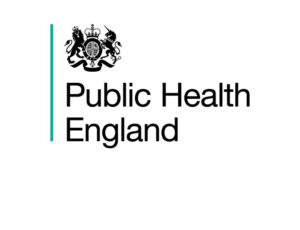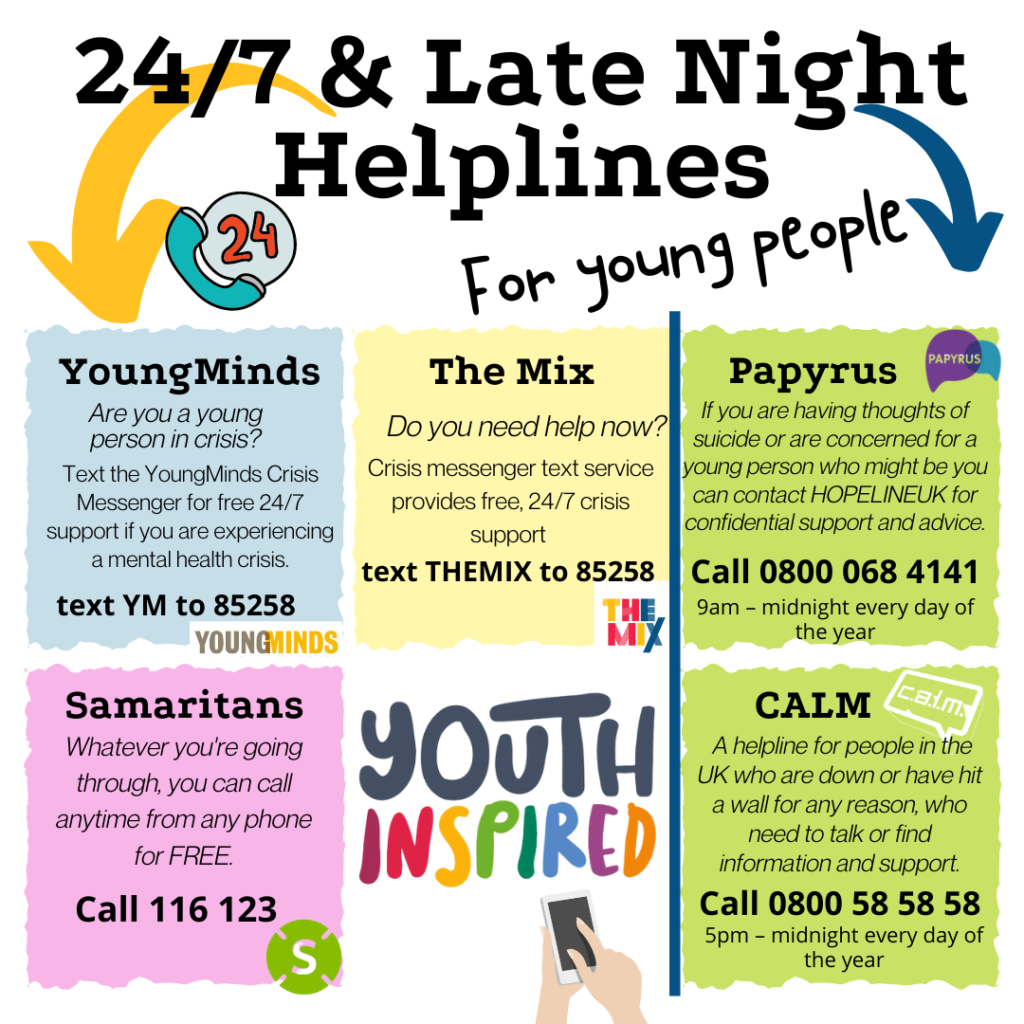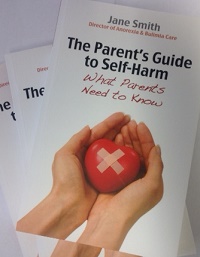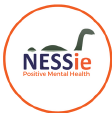Mental health and wellbeing support
Support for parents and carers
It’s really important as parents/carers that we look after ourselves so that we can best support those that we care for. This isn’t always easy and sometimes we need some support and guidance to look after our own mental health as well as learning about how to best support others. Here you will find a list of services, charities and resources that can help:
- Family Action helpline – call 0808 802 6666 or text 07537 404 282 (9am-9pm Mon-Fri), also via email or webchat on website.
- Family Lives helpline – call 0808 800 2222 (Mon-Fri 9am-9pm, Sat-Sun 10am-3pm), also via email or webchat on website.
- Young Minds Parents helpline – call 0808 802 5544 (Mon-Fri, 9:30-4pm), also via email or webchat on website.
- Lifeline is a helpline for adults in Cambridgeshire and Peterborough. Trained staff can discuss issues affecting mood and wellbeing during this time, or signpost to other sources of support. Call 11am-11pm on 0808 808 2121.
This May Help advice for supporting your child’s mental health. Practical advice that may help for your child’s mental health, self-harm, gaming and online activity, teenagers safety, eating disorders and school avoidance.
Emotional Health and Wellbeing Service have dedicated helplines to advise and support parent carers and young people.
Keep Your Head brings together good, reliable information on mental health and wellbeing for children and young people as well as their families and carers.
NESSie IN ED, CIC – Positively supporting parents of children with self-harming behaviours and other emotional and mental health needs for parents and carers in Cambridgeshire and Peterborough.
Anna Freud National Centre for Children and Families – offer advice and guidance to parents and carers to help them support a children and young people who may be struggling with poor mental health.
The Cogwheel Trust – a Cambridgeshire-based charity which works to improve the emotional and mental wellbeing of local people. Cogwheel provides a range of counselling services for all ages (in-person and online) including providing services which are affordable to those on low and limited incomes.
Young Minds – help parents and carers who are worried about their child’s mental health with tips, information and advice online and through their Parents Helpline service.
Mind – provide advice and support to empower anyone experiencing a mental health problem.
Family Lives – support with all aspects of family life that include all stages of a child’s development, issues with schools and parenting/relationship support. They also respond when life becomes more complicated and provide support around family breakdown, aggression in the home, bullying, teenage risky behaviour and mental health concerns of both parents and their children.
Click Relationships – relationship help specifically for people who are disabled / neurodivergent.
The Sleep Charity – leading, independent expert voices on sleep issues in the UK. They are here to help everyone get a better night’s sleep. Whether it’s advice, education or support for children, teenagers, adults, workplaces or professionals, they are on hand with expert knowledge, resources and accredited training.
Triple P Parenting – Triple P is a parenting programme, but it doesn’t tell you how to be a parent. It’s more like a toolbox of ideas. You choose the strategies you need. You choose the way you want to use them. It’s all about making Triple P work for you.
Shout Crisis Text Line – provides free, confidential support, 24/7 via text. Text 85258 for any painful emotion for which you need support.
Beat – help with eating problems and disorders.
The Kite Trust – support parents, carers and other family members of LGBTQ+ young people in Cambridgeshire, Peterborough and surrounding areas through information, support and groups.
The Proud Trust – help to talk about being LGBTQ+.
Gingerbread – provide information to help single parents support themselves and their family.
Healthy You – free service for Cambridgeshire and Peterborough residents who are looking to make changes to their lifestyle. Whether you want help to stop smoking, lead a more active lifestyle, lose some weight, or simply take advantage of the NHS Health Checks, Healthy You – funded by Cambridgeshire County Council and Peterborough City Council – can help you.
Group Therapy Centre – charity commissioned by Cambridge & Peterborough NHS to provide group therapy in Cambridgeshire. We offer therapy for local people experiencing emotional and mental health worries.
Lifecraft – user-led organisation for adults in the Cambridgeshire and Peterborough area who have experience of mental health difficulties in their lives. Provide a number of services to support the wellbeing of people with mental health difficulties including a range of weekly creative and recovery support groups and social activities, a Counselling Service and Lifeline, a telephone helpline.
Samaritans – for anyone who’s struggling to cope, who needs someone to listen without judgement or pressure.
Headroom from the BBC is a dedicated online resource; a toolkit for the mind to help people look after themselves with practical everyday tips, inspiring personal stories, activities and music mixes to boost your mood, escape and relax.
Papyrus – provide confidential support and advice to young people struggling with thoughts of suicide, and anyone worried about a young person.
How Are You Cambridgeshire and Peterborough – bringing together everything in the local community that is good for wellbeing.
Active 10 – helps to improve your physical activity levels.
Best – You – helps to improve your physical activity levels and your general mental wellbeing, stop or reduce alcohol, drug or cigarette use and connect with other people to share experiences.
CATCH – a free NHS health app for parents and carers of children from pregnancy to age 5. CATCH eases the sense of information overload, particularly regarding pregnancy and children’s health. With the number of resources available, it can be difficult to know who to trust. CATCH provides local NHS-approved information with your best interests at heart, so you won’t need to look elsewhere.
Combined Minds – an app developed for teenage mental health charity stem4 by Dr. Nihara Krause, Consultant Clinical Psychologist, to help families and friends support young people with their mental health.
Hub of Hope – mental health support database. It is provided by national mental health charity, Chasing the Stigma, and brings local, national, peer, community, charity, private and NHS mental health support and services together in one place for the first time.
Lower My Drinking – expert advice and scientifically-proven tools you need to reduce your drinking to the recommended limit of 14 units a week or less.
Molehill Mountain – an app to help autistic people understand and self-manage anxiety.
My Possible Self – Mental health support created by world-leading healthcare professionals. Teaming up with their friends at Priory Healthcare, world leaders in mental health, they have created interactive tools and techniques, using cognitive behavioural therapy (CBT), customised for digital use.
NHS Smokefree – NHS Quit Smoking app to help you quit smoking and start breathing easier.
Pzizz – app to help you quickly quiet your mind, fall asleep fast, stay asleep, and wake up refreshed. They create beautiful “dreamscapes” — a mix of music, voiceover and sound effects designed using the latest clinical research — to help you sleep better at night or take power naps during the day.
Worry Tree – aims to help you take control of worry wherever you are. You can use the app to record whatever you feel worried about. It uses cognitive behavioural therapy (CBT) techniques to help you notice and challenge your worries. It can also help you create an action plan for managing worry.
Qwell – Adults in Cambridgeshire and Peterborough can sign up to this free online support and wellbeing community. Once anonymously registered, you’ll gain access to online peer support, self-help resources, an online magazine and chat-based counselling.
As part of the restoration and recovery phase of COVID-19, a series of videos were put together by the Cambridgeshire SEND Services in partnership with Pinpoint. The 7 videos offer an accessible introduction to the latest research and guidance related to topics such as boosting resilience, developing emotional literacy and emotional regulation and managing anxiety. There are ideas for effecting change and managing transition at home, as well as guidance on the language that we can use to support children and young people in distress.
Although the videos were developed with the return after COVID-19 in mind, they offer a really useful resource.
Psychological First Aid training for supporting children and young people affected by emergencies and crisis situations
 Public Health England have launched a new psychological first aid (PFA) online training course to help support children and young people that have been affected by emergencies like the COVID-19 pandemic. It is available for all frontline workers such as teachers, health and social workers, charity and community volunteers and anyone who cares for or is regularly in contact with children and young people aged up to 25, including parents and caregivers.
Public Health England have launched a new psychological first aid (PFA) online training course to help support children and young people that have been affected by emergencies like the COVID-19 pandemic. It is available for all frontline workers such as teachers, health and social workers, charity and community volunteers and anyone who cares for or is regularly in contact with children and young people aged up to 25, including parents and caregivers.
Those completing the training will be equipped to better identify those children that are in distress and provide support to help them feel safe, connected and able to take steps to help themselves during the pandemic or other crisis situations.
The course is free, takes up to three hours to complete (that the learner can complete at their own pace) and no previous qualifications are required.
Psychological First Aid is a globally recognised training programme for emergency situations and PHE has developed this new course with input and advice from a range of experts, government and charitable organisations via an advisory group which includes NHS England, the Department for Education, British Red Cross and in partnership with FutureLearn.
Support for young people
Young people can improve their mental health by staying physically active, learning about mental health and wellbeing, tracking their own mood, learning good coping strategies, how to manage stress, how to manage difficult feelings and reaching our for specialist help when they need it. Below is a list of useful resources for young people:
- Anxiety UK – call 03444 775 774 (Mon-Fri 9:30am-5:30pm, not freephone)
- BEAT Youthline – call 0808 801 0711 (9am-8pm Mon-Fri, 4pm-8pm weekends)
- CALM – call 0800 58 58 58 (5pm-12am every day).
- Childline (up to 19 years) – call 0800 1111 (Mon-Fri, 9am-3:30pm), or 1to1 chat option via website.
- The Mix – call 0808 808 4994 (3pm-12am every day), or via email or 1:1 chat (see website). They also have a crisis messenger text service – text THEMIX to 85258.
- No Panic Youth (13-20 years) – call 0330 606 1174 (Mon, Tues, Weds Fri 3pm-6pm, Thurs and Sat 6pm-8pm, not freephone).
- YoungMinds – text ‘YM’ to use the crisis messenger service for free 24/7 support on 85258.

Emotional Health and Wellbeing Service have dedicated helplines to advise and support young people. They have produced this useful well-being resources sheet which collates all the support available for young people.
ChatHealth: Text Messaging Service for 11-19 year olds – ChatHealth is an alternative way for young people to engage with experienced clinicians who will answer texts from 9.30am-4pm Mon-Fri on a range of topics including anything from healthy eating, smoking, self-harm and bullying. Young people (11-19 years) can text 07480 635 443 to start a conversation.
Keep-Your-Head website for Children & Young People – brings together good, reliable information on mental health and wellbeing.
Centre 33 – provide free and confidential information and support for young people up to the age of 25 in Cambridgeshire and Peterborough.
The Cogwheel Trust – a Cambridgeshire-based charity which works to improve the emotional and mental wellbeing of local people. Cogwheel provides a range of counselling services for all ages (in-person and online) including providing services which are affordable to those on low and limited incomes.
Young Minds – provide young people with tools to look after their mental health. Their website is full of advice and information on what to do if you’re struggling with how you feel.
The Mix – here to take on the embarrassing problems, weird questions, and please-don’t-make-me-say-it-out-loud thoughts that people under 25 have in order to give them the best support through their digital and phone services.
The Kite Trust – support the wellbeing and creativity of LGBTQ+ young people in Cambridgeshire, Peterborough and surrounding areas through information, support and groups.
Papyrus – provide confidential support and advice to young people struggling with thoughts of suicide.
Worry Tree – The WorryTree app aims to help you take control of worry wherever you are. You can use the app to record whatever you feel worried about. It uses cognitive behavioural therapy (CBT) techniques to help you notice and challenge your worries. It can also help you create an action plan for managing worry.
Think Ninja – a mental health app designed for 10 to 18 year olds. Using a variety of content and tools, it allows young people to learn about mental health and emotional wellbeing, and develop skills they can use to build resilience and stay well. Available at app stores.
Kooth is a free mental health provider who offers anonymous and personalised mental health support for Children and Young People online and through an app.
Calm Heart – an app for sleep, meditation and relaxation.
Clear Fear – an app developed for teenage mental health charity stem4 by Dr Nihara Krause, Consultant Clinical Psychologist, that uses the evidence-based treatment CBT to focus on learning to reduce the physical responses to threat by learning to breathe, relax and be mindful as well as changing thoughts and behaviours and releasing emotions. The Clear Fear app is recommended for the ages of 11-19 years.
DistrACT – app gives you easy, quick and discreet access to information and advice about self-harm and suicidal thoughts. For Anyone over the age of 17 who’s concerned about self-harming.
Me Too – app provides a safe and secure forum for teenagers wanting to discuss any issue affecting their lives. You can anonymously get advice from experts or other teenagers going through similar experiences in areas such as mental health, self-harming, relationships and friendships.
Molehill Mountain – an app to help autistic people understand and self-manage anxiety.
My Possible Self – Mental health support created by world-leading healthcare professionals. Teaming up with their friends at Priory Healthcare, world leaders in mental health, they have created interactive tools and techniques, using cognitive behavioural therapy (CBT), customised for digital use.
Pzizz – app to help you quickly quiet your mind, fall asleep fast, stay asleep, and wake up refreshed. They create beautiful “dreamscapes” — a mix of music, voiceover and sound effects designed using the latest clinical research — to help you sleep better at night or take power naps during the day.
Student Health App – provides easy access to more than 900 pages of reliable health information all in one place. The content has been created for university students by NHS doctors and is regularly updated.
Feeling Good Teens – offers Positive Mental Training audio programmes for 10 to 15-year-olds to develop self-esteem, resilience and goal-focused motivation. Feeling Good’s research in the NHS shows that this can help with letting go of worries, cope better with stress, and sleep better.
FutureLearn provide youth mental health courses to explore and understand the mental health issues that affect young people. Their ‘Young People and Their Mental Health’ course has been created for young people aged over 14 wanting to know more about mental health.
- Delivered by Centre 33 supports children and young people in Cambridgeshire and Peterborough with their mental and emotional wellbeing. They provide free and confidential counselling for young people aged 13-25 years at their regional hubs. The service is an outreach support approach to engaging young people who do not traditionally access Mental Health Support.
- Psychological Wellbeing Service is part of the Improving Access to Psychological Therapies services. Psychological therapies available to those experiencing common mental health problems such as depression and anxiety. Available for over 17 years.
- Ambitious about Autism resource to support parents of children with autism. Includes support on behaviour, early years, education and preparing for adulthood. Includes a useful resource about parents guide to positive mental wellbeing.
- The Cambridge branch of the National Autistic Society which provides support to autistic people of all ages and their families and carers in the Cambridgeshire area.
- Autistica A useful website with resources including tips for managing mental health and autism.
- Chat Health A confidential text messaging service for young people aged 11-19 years. Run by the Healthy Child Programme, the service is available Mon-Fri 9.30am-4.00pm. Text 07480 635 443 to start a conversation.
- Autistica Mountain Molehill An app to help autistic people understand and self-manage anxiety.
Emotional Health and Wellbeing Service have dedicated helplines to advise and support young people. They have produced this useful well-being resources sheet which collates all the support available for young people.
ChatHealth: Text Messaging Service for 11-19 year olds – ChatHealth is an alternative way for young people to engage with experiencd clinicians who will answer texts from 9.30am-4pm Mon-Fri on a range of topics including anything from healthy eating, smoking, self-harm and bullying. Young people (11-19 years) can text 07480 635 443 to start a conversation.
Keep-Your-Head website for Children & Young People – brings together good, reliable information on mental health and wellbeing.
Centre 33 – provide free and confidential information and support for young people up to the age of 25 in Cambridgeshire and Peterborough.
The Cogwheel Trust – a Cambridgeshire-based charity which works to improve the emotional and mental wellbeing of local people. Cogwheel provides a range of counselling services for all ages (in-person and online) including providing services which are affordable to those on low and limited incomes.
Young Minds – provide young people with tools to look after their mental health. Their website is full of advice and information on what to do if you’re struggling with how you feel.
The Mix – here to take on the embarrassing problems, weird questions, and please-don’t-make-me-say-it-out-loud thoughts that people under 25 have in order to give them the best support through their digital and phone services.
The Kite Trust – support the wellbeing and creativity of LGBTQ+ young people in Cambridgeshire, Peterborough and surrounding areas through information, support and groups.
Papyrus – provide confidential support and advice to young people struggling with thoughts of suicide.
Worry Tree – The WorryTree app aims to help you take control of worry wherever you are. You can use the app to record whatever you feel worried about. It uses cognitive behavioural therapy (CBT) techniques to help you notice and challenge your worries. It can also help you create an action plan for managing worry.
Think Ninja – a mental health app designed for 10 to 18 year olds. Using a variety of content and tools, it allows young people to learn about mental health and emotional wellbeing, and develop skills they can use to build resilience and stay well. Available at app stores.
Kooth is a free mental health provider who offers anonymous and personalised mental health support for Children and Young People online and through an app.
Calm Heart – an app for sleep, meditation and relaxation.
Clear Fear – an app developed for teenage mental health charity stem4 by Dr Nihara Krause, Consultant Clinical Psychologist, that uses the evidence-based treatment CBT to focus on learning to reduce the physical responses to threat by learning to breathe, relax and be mindful as well as changing thoughts and behaviours and releasing emotions. The Clear Fear app is recommended for the ages of 11-19 years.
DistrACT – app gives you easy, quick and discreet access to information and advice about self-harm and suicidal thoughts. For Anyone over the age of 17 who’s concerned about self-harming.
Me Too – app provides a safe and secure forum for teenagers wanting to discuss any issue affecting their lives. You can anonymously get advice from experts or other teenagers going through similar experiences in areas such as mental health, self-harming, relationships and friendships.
Molehill Mountain – an app to help autistic people understand and self-manage anxiety.
My Possible Self – Mental health support created by world-leading healthcare professionals. Teaming up with their friends at Priory Healthcare, world leaders in mental health, they have created interactive tools and techniques, using cognitive behavioural therapy (CBT), customised for digital use.
Pzizz – app to help you quickly quiet your mind, fall asleep fast, stay asleep, and wake up refreshed. They create beautiful “dreamscapes” — a mix of music, voiceover and sound effects designed using the latest clinical research — to help you sleep better at night or take power naps during the day.
Student Health App – provides easy access to more than 900 pages of reliable health information all in one place. The content has been created for university students by NHS doctors and is regularly updated.
Feeling Good Teens – offers Positive Mental Training audio programmes for 10 to 15-year-olds to develop self-esteem, resilience and goal-focused motivation. Feeling Good’s research in the NHS shows that this can help with letting go of worries, cope better with stress, and sleep better.
FutureLearn provide youth mental health courses to explore and understand the mental health issues that affect young people. Their ‘Young People and Their Mental Health’ course has been created for young people aged over 14 wanting to know more about mental health.
Schools across Cambridgeshire and Peterborough will not have a uniform mental health support offer. In recent years, there have been several initiatives offered to education settings (through health and the local authority) but these initiatives are not mandatory for schools to take up and therefore mental health support offer will vary school to school. Some of these initiatives are outlined below.
To find out what support is available in your school, speak to your school’s designated mental health lead, SENCO or class teacher and they will be able to tell you what support is available.
Across Cambridgeshire and Peterborough, there has been significant work the national development of mental health support teams.
By 2024, over 50% of education settings in Cambridgeshire and Peterborough will have access to mental health support teams. Mental Health support teams provide individual and group-based interventions with young people and families in relation to mild to moderate mental health needs specifically anxiety, behavioural issues and low mood. To find out if your school is a mental health support team school, contact the mental health lead in your school. For schools who are not directly involved with a mental health support team, they will be provided support and intervention by the Emotional Wellbeing Practitioner Team and the Children Wellbeing Practitioners.
Emotional Health and Wellbeing Service have dedicated helplines to advise and support young people. They have produced this useful well-being resources sheet which collates all the support available for young people.
ChatHealth: Text Messaging Service for 11-19 year olds – ChatHealth is an alternative way for young people to engage with experienced clinicians who will answer texts from 9.30am-4pm Mon-Fri on a range of topics including anything from healthy eating, smoking, self-harm and bullying. Young people (11-19 years) can text 07480 635 443 to start a conversation.
Keep-Your-Head website for Children & Young People – brings together good, reliable information on mental health and wellbeing.
Centre 33 – provide free and confidential information and support for young people up to the age of 25 in Cambridgeshire and Peterborough.
The Cogwheel Trust – a Cambridgeshire-based charity which works to improve the emotional and mental wellbeing of local people. Cogwheel provides a range of counselling services for all ages (in-person and online) including providing services which are affordable to those on low and limited incomes.
Young Minds – provide young people with tools to look after their mental health. Their website is full of advice and information on what to do if you’re struggling with how you feel.
The Mix – here to take on the embarrassing problems, weird questions, and please-don’t-make-me-say-it-out-loud thoughts that people under 25 have in order to give them the best support through their digital and phone services.
The Kite Trust – support the wellbeing and creativity of LGBTQ+ young people in Cambridgeshire, Peterborough and surrounding areas through information, support and groups.
Papyrus – provide confidential support and advice to young people struggling with thoughts of suicide.
Worry Tree – The WorryTree app aims to help you take control of worry wherever you are. You can use the app to record whatever you feel worried about. It uses cognitive behavioural therapy (CBT) techniques to help you notice and challenge your worries. It can also help you create an action plan for managing worry.
Think Ninja – a mental health app designed for 10 to 18 year olds. Using a variety of content and tools, it allows young people to learn about mental health and emotional wellbeing, and develop skills they can use to build resilience and stay well. Available at app stores.
Kooth is a free mental health provider who offers anonymous and personalised mental health support for Children and Young People online and through an app.
Calm Heart – an app for sleep, meditation and relaxation.
Clear Fear – an app developed for teenage mental health charity stem4 by Dr Nihara Krause, Consultant Clinical Psychologist, that uses the evidence-based treatment CBT to focus on learning to reduce the physical responses to threat by learning to breathe, relax and be mindful as well as changing thoughts and behaviours and releasing emotions. The Clear Fear app is recommended for the ages of 11-19 years.
DistrACT – app gives you easy, quick and discreet access to information and advice about self-harm and suicidal thoughts. For Anyone over the age of 17 who’s concerned about self-harming.
Me Too – app provides a safe and secure forum for teenagers wanting to discuss any issue affecting their lives. You can anonymously get advice from experts or other teenagers going through similar experiences in areas such as mental health, self-harming, relationships and friendships.
Molehill Mountain – an app to help autistic people understand and self-manage anxiety.
My Possible Self – Mental health support created by world-leading healthcare professionals. Teaming up with their friends at Priory Healthcare, world leaders in mental health, they have created interactive tools and techniques, using cognitive behavioural therapy (CBT), customised for digital use.
Pzizz – app to help you quickly quiet your mind, fall asleep fast, stay asleep, and wake up refreshed. They create beautiful “dreamscapes” — a mix of music, voiceover and sound effects designed using the latest clinical research — to help you sleep better at night or take power naps during the day.
Student Health App – provides easy access to more than 900 pages of reliable health information all in one place. The content has been created for university students by NHS doctors and is regularly updated.
Feeling Good Teens – offers Positive Mental Training audio programmes for 10 to 15-year-olds to develop self-esteem, resilience and goal-focused motivation. Feeling Good’s research in the NHS shows that this can help with letting go of worries, cope better with stress, and sleep better.
FutureLearn provide youth mental health courses to explore and understand the mental health issues that affect young people. Their ‘Young People and Their Mental Health’ course has been created for young people aged over 14 wanting to know more about mental health.
Support for children
Children can improve their mental health by staying physically active, learning to notice and talk about their feelings and to connect with other people. It can help them to know about where to get help and to reach out for help if they are feeling sad or worried about something. Below is a list of useful resources for children:
Stormbreak – aim to improve children’s mental health through movement, equipping them with sustainable, transferable skills and coping strategies to thrive during the complex demands of growth into adult life.
Keep-Your-Head website for Children & Young People – brings together good, reliable information on mental health and wellbeing.
The Cogwheel Trust – a Cambridgeshire-based charity which works to improve the emotional and mental wellbeing of local people. Cogwheel provides a range of counselling services for all ages (in-person and online) including providing services which are affordable to those on low and limited incomes.
The Mix – here to take on the embarrassing problems, weird questions, and please-don’t-make-me-say-it-out-loud thoughts that people under 25 have in order to give them the best support through their digital and phone services.
The Pound Trust – helps with talking about LGBTQ+.
Kooth is a free mental health provider who offers anonymous and personalised mental health support for Children and Young People online and through an app.
Think Ninja – a mental health app designed for 10 to 18 year olds. Using a variety of content and tools, it allows young people to learn about mental health and emotional wellbeing, and develop skills they can use to build resilience and stay well. Available at app stores.
Chill panda – Learn to relax, manage your worries and improve your wellbeing with Chill Panda. The app measures your heart rate and suggests tasks to suit your state of mind. Tasks include simple breathing techniques and light exercises to take your mind off your worries. Suitable for ages 4-13.
Bereavement support
The loss of a loved one is hard for anyone but for children and young people it can be overwhelming. There are a number of support offers for children and young people who have experienced loss or who will face loss because someone close to them is dying.
CHUMS CHUMS Mental Health and Emotional Wellbeing Service offers support to children and young people with mild to moderate mental health difficulties, such as anxiety and low mood, as well as those with significant emotional wellbeing difficulties arising from life events, such as bereavement and bullying.
Kooth is a free mental health provider who offers support online and through an app. They support a wide range of mental health needs including bereavement.
Stars offer counsellors, in Cambridgeshire, and can help by listening and encouraging young people to express their painful emotions through creative play and work.
Winston’s Wish provide support for bereaved children
Apart of Me is a free app that has been designed by grief experts and young people who have had a similar experience. It is a magical, peaceful world populated by friendly creatures and a wise guide. The game is designed to help cope with the death of a loved one. Based on psychological research, the app provides a safe virtual space featuring games and quests that teach self-care strategies and help reduce the sense of isolation.
Bereavement Advice Centre offer a free helpline for topic advice after a death
The Compassionate Friends offer bereavement support
Cruse Bereavement Care provide bereavement support
JBCS (Jewish Bereavement Counselling Service) support for bereaved Jewish families
National Association of Widows support bereaved widowed men and women
SANDS support after a stillbirth or neonatal death
SOBS (Survivors of Bereavement by Suicide) can help by offering support to those bereaved by suicide
SPRING
Support after baby loss
Sudden Death Association help people after a sudden death.
WAY (Widowed & Young) support for young widowed men and women
Additional Resources:
Young Minds have resources for parent carers to use with children and young people.
ELSA has a wide range of resources including books and support activities.
Care for the Family have tips and hints to help at this difficult time.
Self Harm – parent help in Cambridgeshire
In recent years, Pinpoint has helped parents whose children and young people have been self-harming. Our monthly support group is no longer running but we are working with other charities and county partners to develop a co-ordinated approach to supporting families affected by self harm.
We support the ‘Listen’ group that runs in Huntingdon every month.
We also have resources to share, including some useful tips and strategies.
How I coped – Mark’s story
 “Pinpoint gave me the confidence not to give up when things were tough – and a year on, the turnaround for my son has been massive. That experience and the journey we’ve been on inspired me to set up a new support group for parents where they can be open, chat and not worry about being judged in any way.”
“Pinpoint gave me the confidence not to give up when things were tough – and a year on, the turnaround for my son has been massive. That experience and the journey we’ve been on inspired me to set up a new support group for parents where they can be open, chat and not worry about being judged in any way.”
Parent Mark gave up his career when his son’s self-harming began to escalate. Now, he’s back to helping others but this time he’s supporting other parents at Listen*, a new Huntingdon group he set up last autumn.
NESSie – new free support service for parent carers – Positively Supporting Self -Harming Behaviours
NESSie is funded to support parents/carers of children and young people who self-harm to explore and develop a positive and more confident approach to keeping young people safe and offer a chance to identify useful strategies and resources.
Free online and face-to-face workshops
Parent Support line Tel: 07932 651319 (open Wednesdays 9 am – 12 pm or by appointment)
A private moderated Facebook support group
Cambridge support group for parents of children/young people that self-harm
1-1 support and advice sessions
Peer support groups
For more information go to NESSie’s website.

‘The Parent’s Guide to Self-Harm’ by Jane Smith as an extremely useful source of information. We have copies available to parents on request.
We have copies available to parents on request.
www.keep-your-head.com a website supporting mental health among residents in Cambridgeshire and Peterborough
KOOTH – online counselling for 11-24 year olds
CHUMS – support for parents and children and young people in Cambridgeshire (up to 25) and Peterborough (up to 18). Cambridgeshire contact number is 0330 0581 659 and Peterborough 0330 0581 657.
Young Minds’ parents helpline: 0808 802 5544 from 9:30am – 4pm, Monday – Friday
Qwell
Qwell offer free, safe and anonymous mental health and wellbeing support.
You can watch a video about the support available here.
Bullying – Where to find advice and support
“Bullying is the repetitive, intentional hurting of one person or group by another person or group, where the relationship involves an imbalance of power. It leads to an outcome which is always painful and/or distresses.”
Anti-Bullying Alliance (ABA)
Bullying can happen to any child, but children with special educational needs or a disability (SEND) are more likely to be bullied. However, it is important to remember that not all children experience bullying.
You can find help an advice to support your and your child on the following websites:
Trauma
Some children and young people experience trauma and may need additional support. Mental health services can provide the appropriate support and identify ways to meet a child or young person’s needs. Please ask your doctor for a referral.
For those wanting to find more self-guided support, the following resources may be helpful (but are not a substitute for professional involvement).


